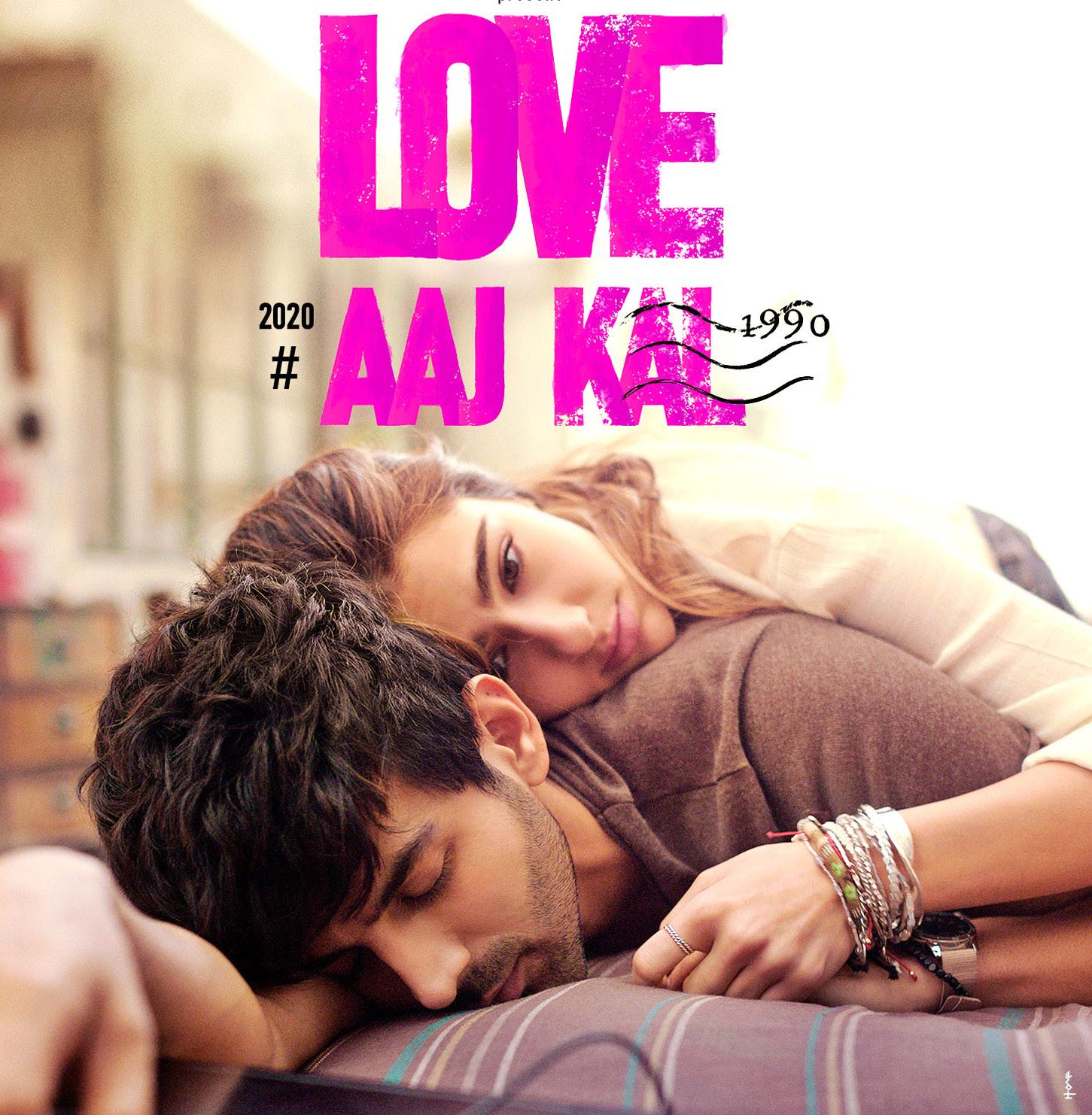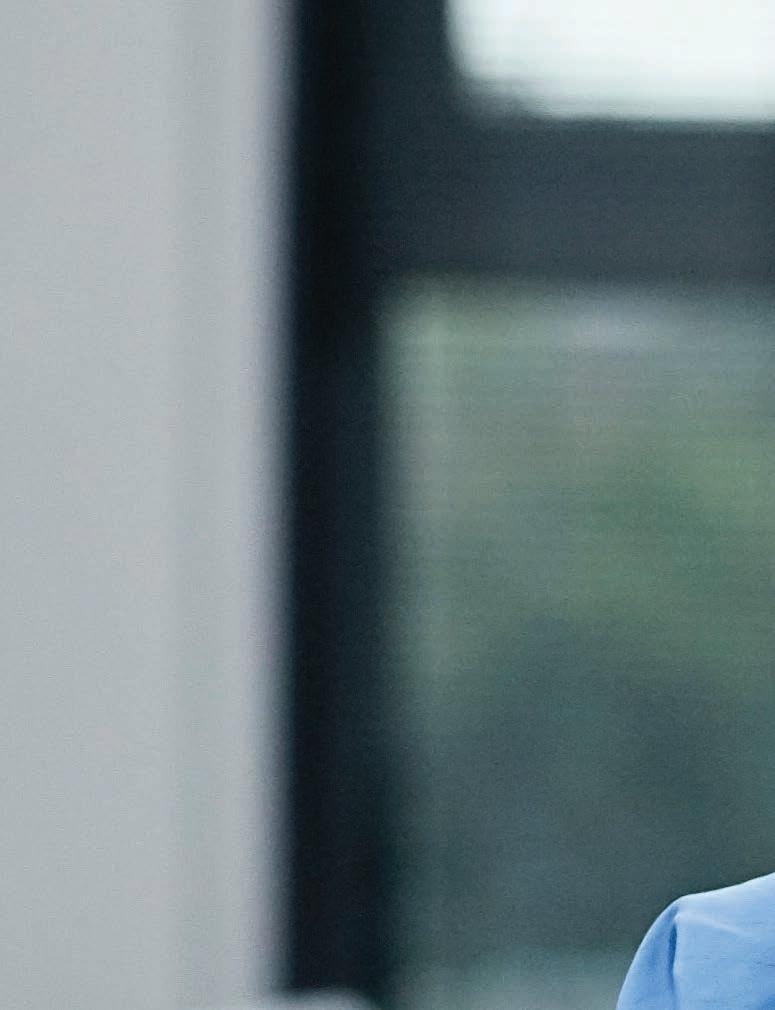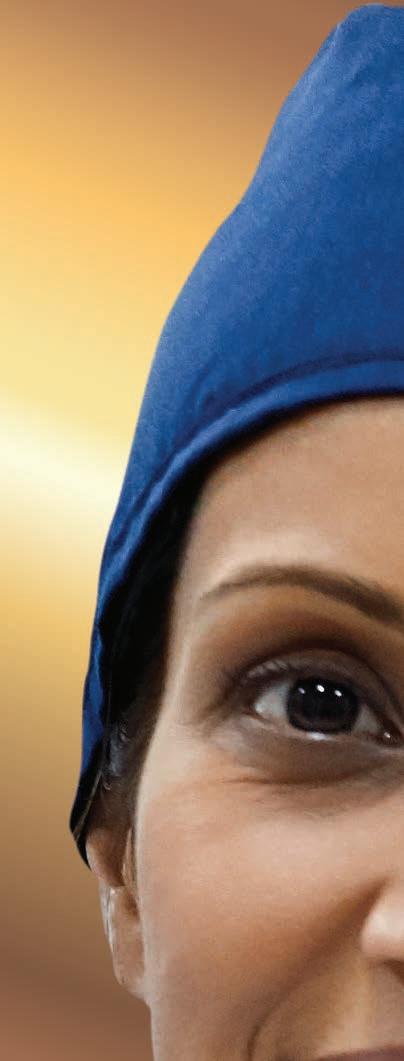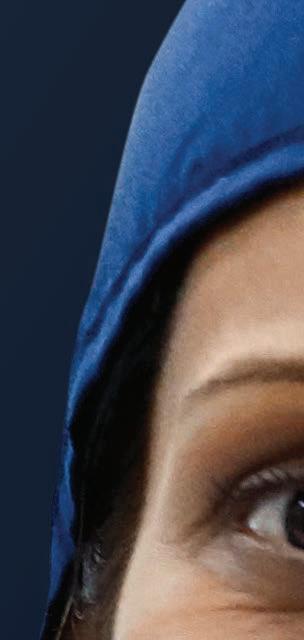
5 minute read
cineTALK REMIXED ROMANCE LACKS FIZZ
from 2020-02 Sydney (2)
by Indian Link
about a slowburn impact. His lms start off on a simplistic note, and acquire a deeper context as they move.
Ali bases his concurrent stories in the early nineties and presentday. The rst love story, between Raghu and Leena (Kartik Aaryan and Aarushi Sharma) is played out in small-town Udaipur of yore. Ali spins a quaint little story of the struggles of love. The second story is of Zoe (Sara Ali Khan), a ercely ambitious young woman who wants to crack the events management business before she gives her affair with Veer (Kartik in a dual role) a serious thought.
Love Aaj Kal
STARRING: Kartik Aaryan, Sara Ali Khan, Arushi Sharma
DIRECTOR: Imtiaz Ali
H H H
You know the gig if you’ve seen Love Aaj Kal 2009. There are two love stories, across two time frames, driving home the point that love these days is very different from what it used to be. And then, after the generational gap between romances then and now has been dissected over 140-odd minutes, writer-director Imtiaz Ali ends up with a message that's not exactly original: love is a process, a journey. If love is honest, it will nd a way.
For Ali, a tale of love invariably becomes a scope to spew pop philosophy too, about self, sel essness, identity, soul and soulmate. It was an idea that he tapped in Highway, Tamasha and Rockstar, and even Love Aaj Kal 2009, which he goes about reinventing with his new effort. Larger re ections about life continue to nd resonance in this remixed tale of mush, too, although the idea seems less impactful this time.
Thematically, and broadly in terms of execution, the new Love Aaj Kal is the same lm, although the two plots sustaining the runtime are different from the original.
Imtiaz Ali's storytelling has always been
Wicked But Flawed
AFSOS (AMAZON PRIME)
STARRING: Gulshan Devaiah, Anjali Patil, Heeba Shah
DIRECTOR: Anirban Dasgupta and Dibya Chatterjee
HHH
Afsos, an eight-episode web series by Anirban Dasgupta and Dibya Chatterjee, is cheeky black humour that drives existential questions about some profound topics.
The tone of wry wit is set at the onset as Nakul (Gulshan Devaiah) gears up for suicide at a rail track. This is his twelfth attempt. As the train approaches, Nakul decides he needs a pillow as headrest on the rail track.

We understand he is good for nothing – the sort of guy who cries out for help while jumping into the sea. Even the neighbourhood kids call Nakul a loser.
The suicidal hero nally gives out a contract for his own killing. And then, just when all is ready for his foolproof death in the hands of a professional expert (Heeba Shah), Nakul nds a reason to live.
The catch is, the assassin assigned to
In terms of melodrama as well as the existential challenges that the lovers face, Raghu and Leena's lives and love would seem more simplistic and sorted out than the world of Zoe and Veer. Yet, as the two stories move parallel to each other, they are cloaked by the same sense of ennui.
Ali was obviously trying to initiate a deeper conversation about the con ict between love and career that Gen Now faces, through Zoe's life. Yet Director Ali is let down by Writer Ali in this context.
It is interesting to note how a distinct palate is reserved for the two stories. If Raghu and Leena's small-town milieu of the nineties bears the visual template of Bollywood love stories of that era, Zoe and Veer live out a far more complex relationship.
‘help’ Nakul end his life, isn’t giving up on her commitment to kill him.
Afsos talks of life and death in the most matter-of-fact manner, through cheeky scenes that would de ne everyday humdrum. (For instance, a couple of housepainters perched precariously high up on a multi-storeyed building discuss how a slip in balance could actually be lucrative for their families). The story gets a sarcastic edge as Nakul is made out to be ‘the celebrity who can never die’.
Trouble is, after the initial novelty wears off, the narrative never really picks up.
An interesting dash of humour precedes every episode if you look closely, especially for Bengali viewers. The series, the casting declares, is based on a Bengali novel named Golper Goru Chaande. Translated, that means ‘in ction, a cow can scale the moon’. The catch is, no such novel exists. It is a tongue-in-cheek assertion of the fact that this is a story that cannot happen
Since Ali chooses to look at the saga primarily from the viewpoint of Zoe, Sara Ali Khan naturally gets the most signi cant protagonist in the story. Zoe's con icts as a con dent career woman and a confused lover-girl make for a fascinating character, and threelm-old Sara exudes a strong screen personality. However, her effort is marred by hamming.
On Kartik Aaryan, you could do a double take when he tries to pass off as a school student in uniform, but he does well to balance his acts as the impulsive teenager of the nineties and the awkward geek of today. The script lets him explore his image as a romantic hero beyond the comic vein that has established his stardom over a short period of time, and he takes to the role with eagerness. Sadly, awed storytelling hampers his effort, as well as his chemistry with both Aarushi and Sara.
Randeep Hooda is a delight to watch, in the role that Rishi Kapoor played in the original Love Aaj Kal, although Hooda's protagonist gets to essay it with a twist. The actor, bankable as ever, pulls off a role that offers limited scope with understated nesse.
This is a beautifully shot lm (cinematography by Amit Roy), although Aarti Bajaj's editing could have been tighter all through. The lm moves at a lazy pace, only to arrive at an ending you would have guessed by interval.
If Ali wanted to re-tell an old story to a new generation with a twist, one fails to understand why he chose Love Aaj Kal for the experiment. For one, the original Love Aaj Kal is only a decade old, therefore too young for a remake. Importantly, changing perceptions of love across decades is no longer a novel theme in lms.
Vinayak Chakravorty
– just like the ctional cow jumping up to the moon. This is a clever throwback on the famous pre-credits announcement gag in Coen Brothers’ Fargo, declaring the lm is based on true events, which it wasn’t. On cue, we seea van displaying a ctitious product named Fargo in a pivotal scene.
Such intelligent slant at humour is a breath of fresh air in Indian showbiz. It re ects good creativity, as does a narrative track that discusses the eternal tussle between science and religion.
In fact, telling the story of a man who cannot die, the lm intelligently pitches a science-versus-religion tussle over the fantastical ‘amrit’, or elixir, which can render a man immortal. And while doing so, it also leaves you with an uncomfortable question — if indeed there is immortality, wouldn’t life ultimately become a terrifying trail of afsos (regrets)?
Vinayak Chakravorty






































